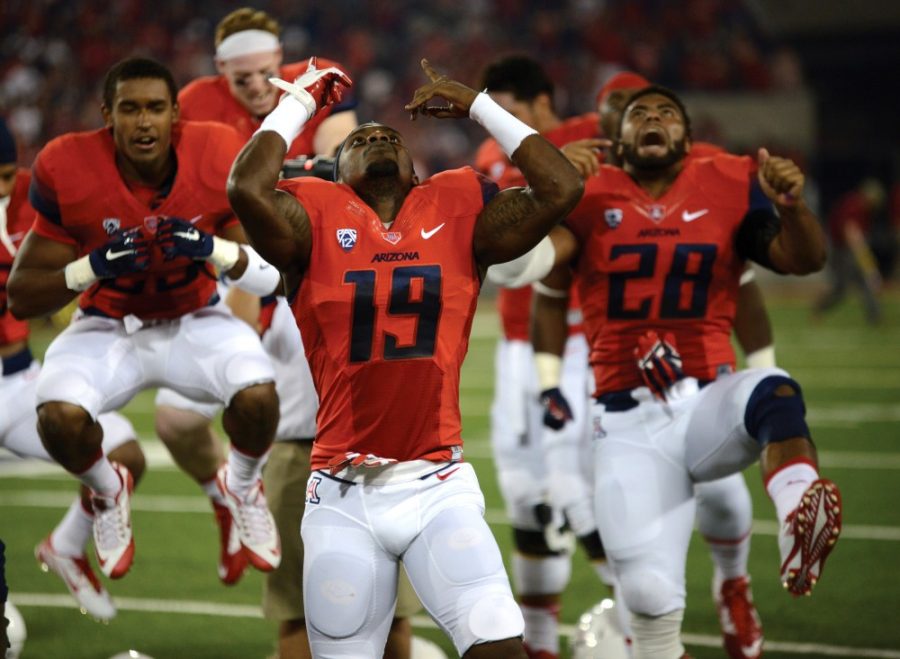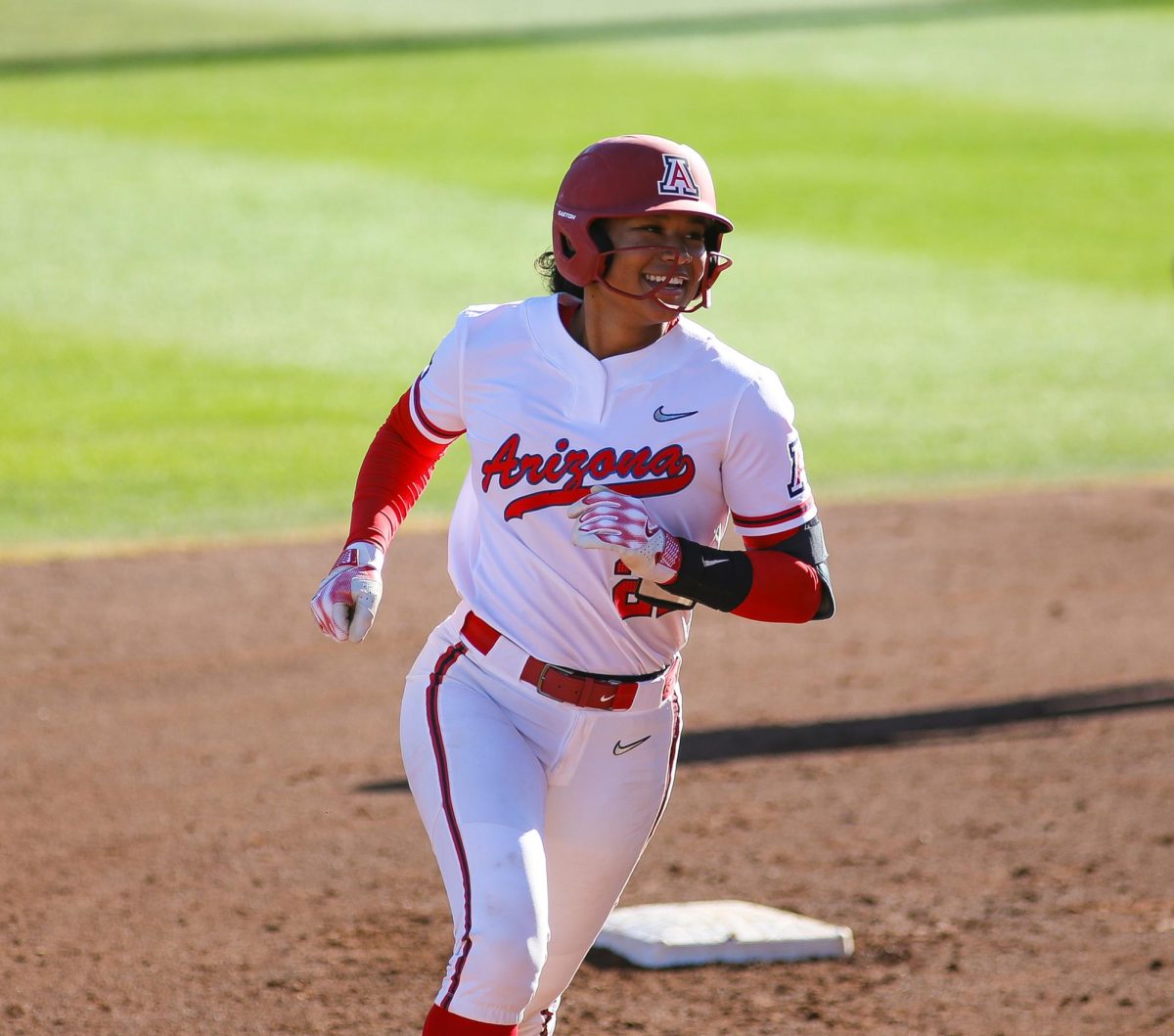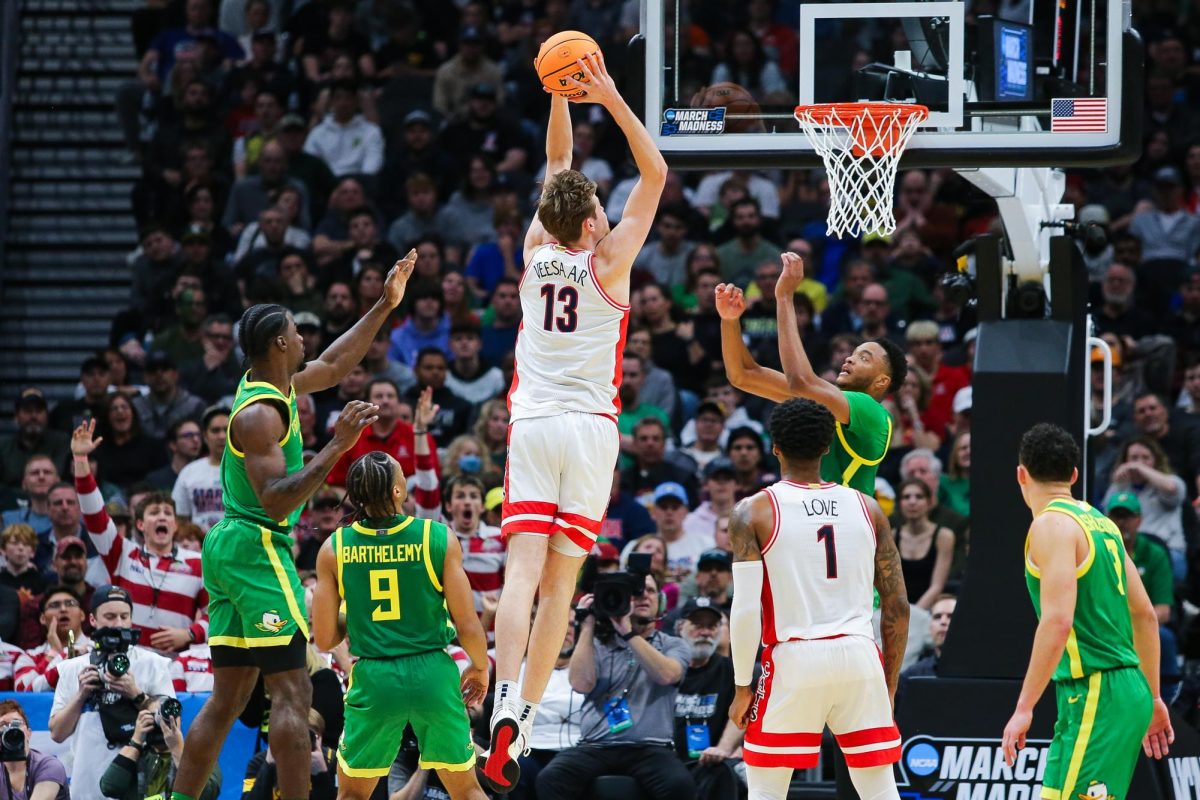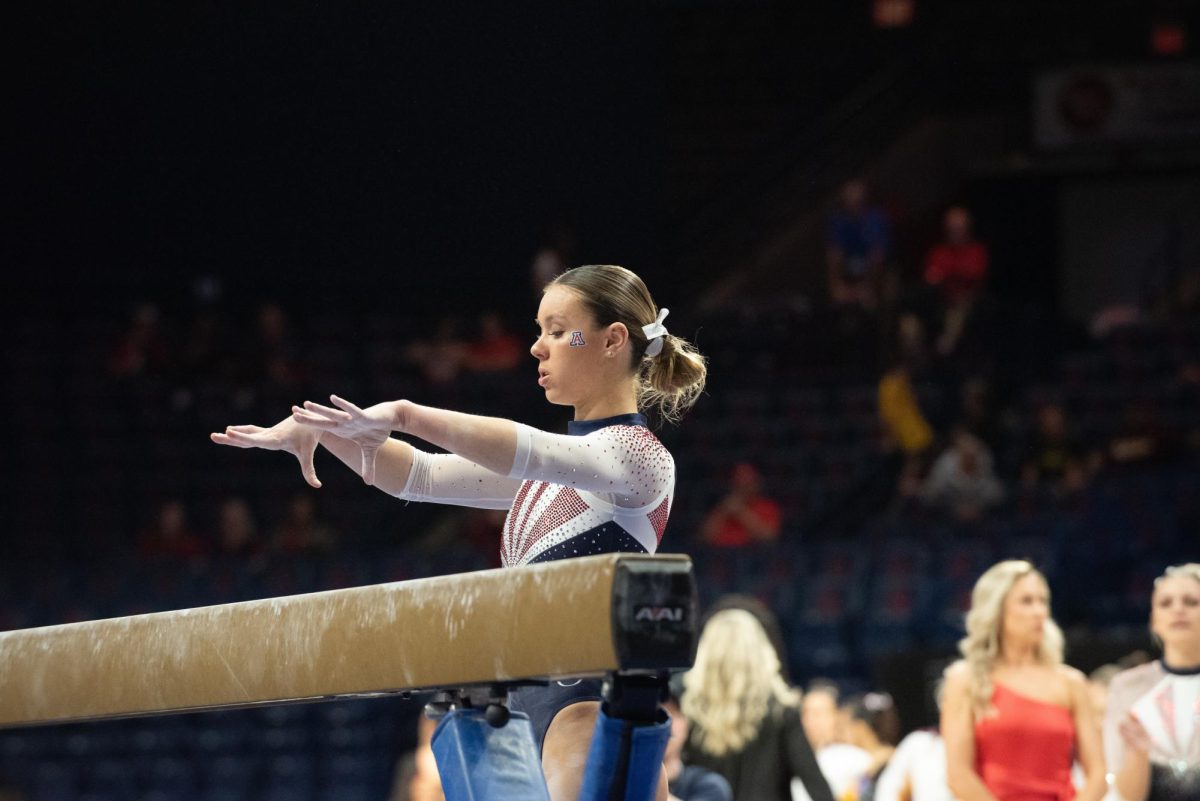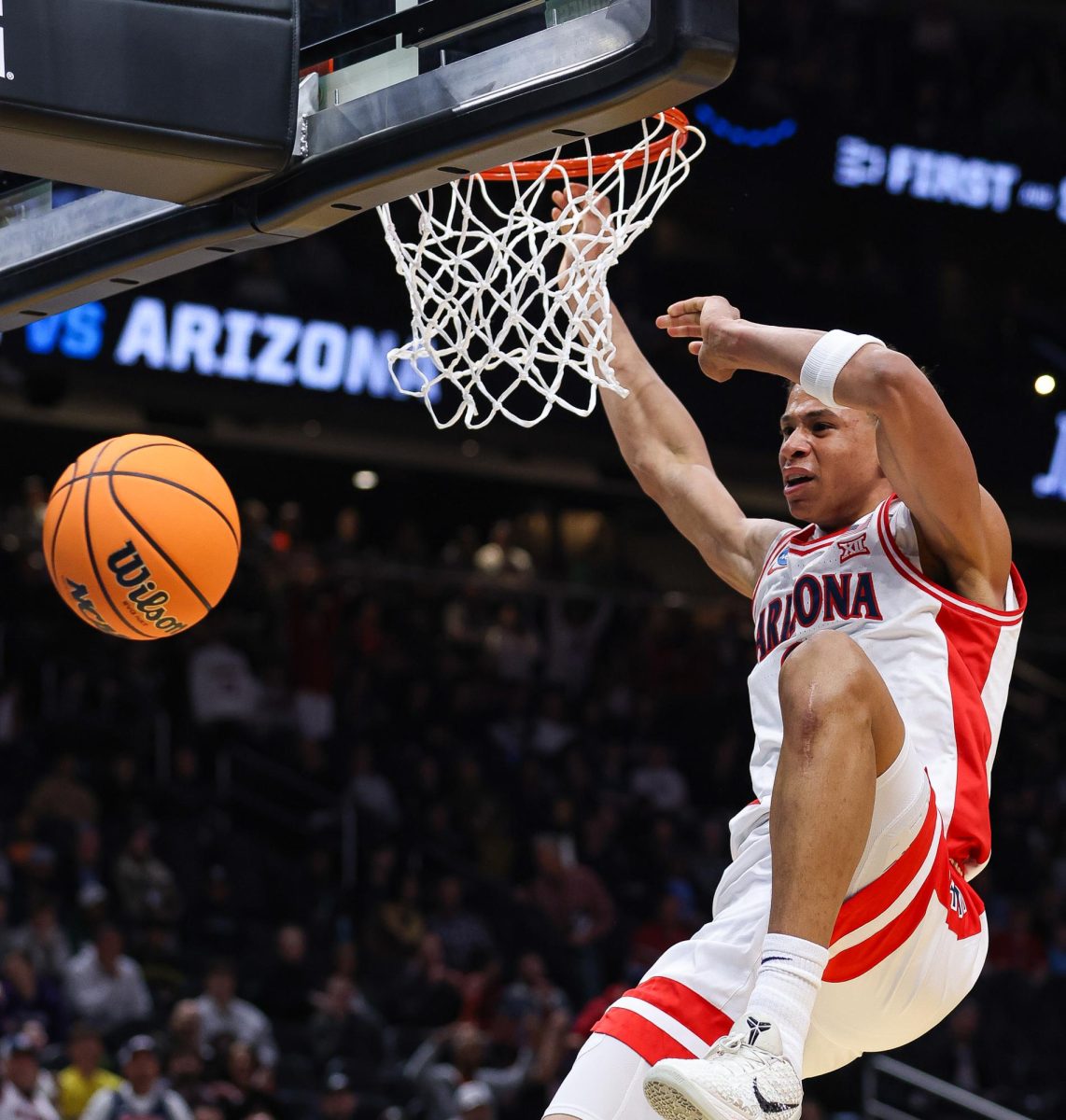For the first time in almost a year, Arizona Stadium may witness the Wildcats football team take part in the prominent Ka Mate Haka dance that was prohibited last October for the team performing it wrong.
Dr. Christina Campbell from Cal-State, Northridge released a petition last year claiming the Wildcats did the dance “poorly” and offended many of the New Zealand natives. After the famous Polynesian dance was banned as a pre-game tradition, Vice President of Athletics Greg Byrne provided defensive lineman Sani Fuimaono two options: Either teach the entire team mid-season how to properly Haka or scrap it and create a Wildcat version of it.
“Somebody got all upset about the Haka for whatever reason, so we didn’t do it and we were told, ‘Well, it would be okay to create your own,’” Arizona head coach Rich Rodriguez said. “And Sani Fuimaono worked his tail off this summer to create one just for Arizona and Arizona football. … I thought it was pretty remarkable what he put together.”
When the ban was posted, the Wildcats were 3-1 after getting embarrassed on national television by UCLA.
For Fuimaono and the rest of the team, a prohibition for a pre-game ritual was the last thing on their minds, even though the tradition was shattered.
“At the time, things weren’t going our way and I think it was just to help us refocus and not have that as an extra distraction,” Fuimaono said. “A lot of people were bummed out about it—coach [Rodriguez] was pissed.”
Once the school year was finished, the only thing on Fuimaono’s mind was football, family and an attempt to revive the beloved tradition. Except this time, Fuimaono wanted to add a little more Wildcat flavor and bring back a tradition that was near and dear to the football team’s heart, according to Arizona linebacker Cody Ippolito.
“I think he was just doing it for our tradition,” Ippolito said. “He just made it because it’s a tradition here and we would like to do it and we want to keep that tradition going.”
Fuimaono stayed patient and, even though he had to teach himself the new and uncontroversial dance, it made his job easier as the instructor because the whole team was eager to learn.
“The guys have been responding very well to it and the big thing was to just bring something unique and something of our own for Arizona,” Fuimaono said.
Arizona isn’t modifying the meaning of the dance, but rather changing the lyrics. The meaning will still represent strength and unity on the battlefield.
“There’s no such thing as modifying it. You just keep it traditional and make it your own [by] basically creating new lyrics,” Fuimaono said. “When I was in middle school, we started to do language classes and I took a Polynesian language class and we learned about the Maori language. I think a big part of it is just that I take pride that they say the words correctly…because if you say it a different way, then it doesn’t have that meaning to it.”
After Wednesday’s practice, Fuimaono spent approximately 15 minutes rehearsing the Wildcat Haka with the team and has practiced everyday this week in preparation for a showdown with Hawaii on Saturday.
“We’ve been [learning] piece-by-piece and this week we’ve been going every day since Sunday, because the boys are like, ‘Hey man, we for sure gotta’ do it for Hawaii week,’” Fuimaono said.
Another reason why the Wildcats are so eager to run the Haka this week against Hawaii is because the Rainbow Warriors perform the Haka before every game prior to walking in the locker room after pre-game warm ups. The only difference between the two is Hawaii’s Haka represents “a boy turning into a man,” so Arizona fans can see first-hand how rich the Polynesian culture is with tribal dances.
“When there’s two opponents, it’s Haka against another Haka,” Fuimaono said.
This will probably be the only unranked, non-conference opponent where Arizona fans should arrive to the stadium early to observe the battle before the actual game.
Follow Justin Spears on Twitter.



